
-

Add: HeBei ShengShi HongBang Cellulose Technology CO.,LTD.
-

Email
13180486930@163.com -

CONTACT US
+86 13180486930

High-Performance Plaster Retarder for Extended Setting Time Solutions
Jul . 29, 2025 14:40
Back to list
High-Performance Plaster Retarder for Extended Setting Time Solutions
Plaster Retarder & Gypsum Retarder: Industry Trends, Technical Specification, Comparison & Application Insights
In the evolving construction chemicals sector, plaster retarder — encompassing gypsum retarder, gypsum plaster retarder, and related chemicals — has become an indispensable additive for modern gypsum-based materials. This in-depth guide explores the core technology, manufacturing process, real-world applications, data-driven performance analysis, and value-driven supplier comparison to help technical buyers and users make informed decisions.
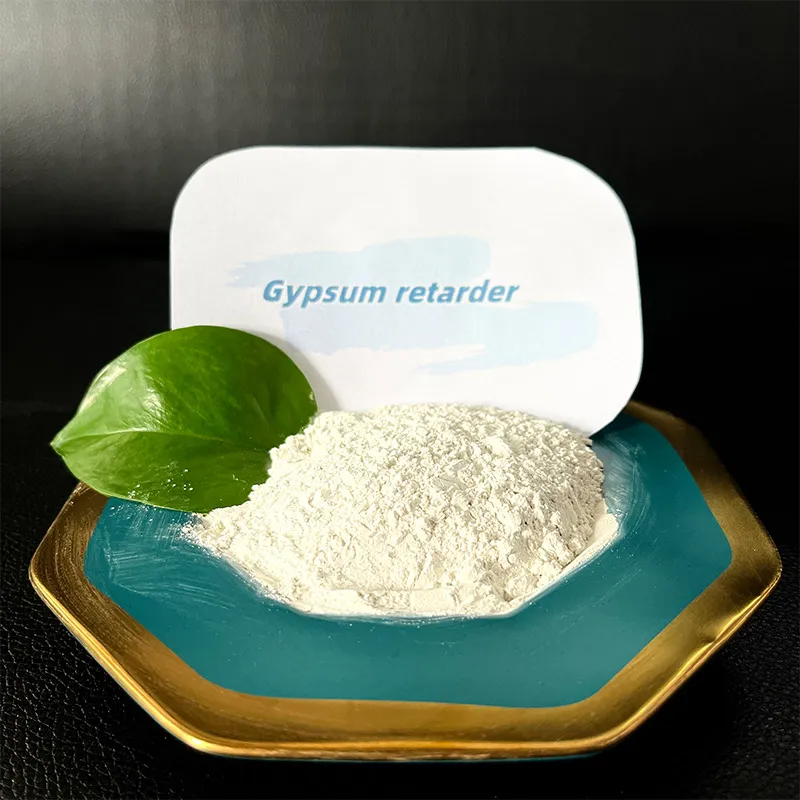
1. Industry Trends: The Rise of Plaster Retarder Solutions
According to Markets and Markets[1], the global construction chemicals market is projected to surpass USD 70 billion by 2026, with plaster retarder as a key segment driven by demand for quality and efficiency.
Gypsum retarders and extra time plaster additives are now essential for:
Gypsum retarders and extra time plaster additives are now essential for:
- Enhanced workability and extended setting times for gypsum-based plasters.
- Compatibility with mechanized spray applications and automated processes.
- Reduction of cracking and shrinkage, improving durability.
Figure: Global market growth of construction retarders (2017-2026, in USD Billion).
2. What is Plaster Retarder? Technical Definition & Composition
Plaster retarder is a specialty chemical additive—typically organic acids, proteins, or modified starches—designed to delay the setting reaction of gypsum/gypsum plaster (calcium sulfate hemihydrate to dihydrate transition). It enables customized setting time, optimal spreadability, and surface finish.
Typical related terms:
Typical related terms:
- Gypsum retarder chemical – modern blends of proteins, tartaric/citric acid, or polycarboxylates.
- Gypsum plaster retarder – tailored for hand or machine application.
- Extra time plaster additive – formulated for large area jobs, medical plasters, or hot climates.
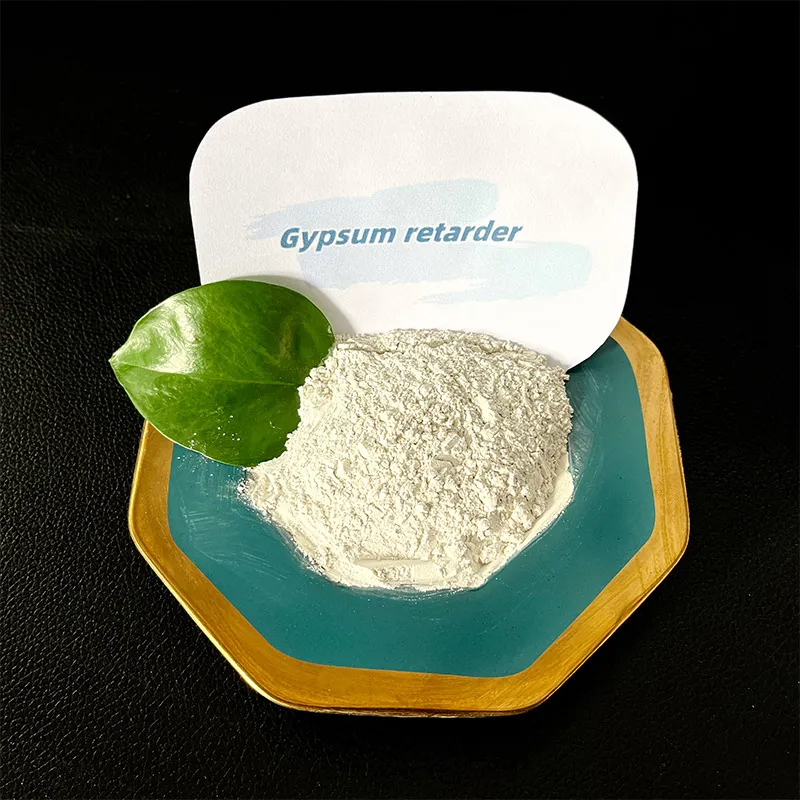
3. Manufacturing Process: From Raw Material to Advanced Plaster Retarder
The quality of plaster retarder is highly dependent on raw material purity, process control, and adherence to international standards (e.g., ISO 9001:2015, EN 13279).
Select High-Purity Raw Materials
Precise Weighing & Blending
Controlled Reactor Synthesis
Drying / Spray Drying (ISO-monitored)
Sieving & Particle Sizing
Quality Control (EN/ISO)
Packaging (Moisture-Proof)
Key process notes: Raw materials are often chosen according to ANSI/ASTM C472 or ISO 14021 guidelines. After synthesis, batch testing is performed to guarantee setting profiles and impurity control. Manufacturers like BHPM utilize CNC automated mixing to ensure reproducibility and uniform particle morphology for fast solution dispersion and minimal dust.
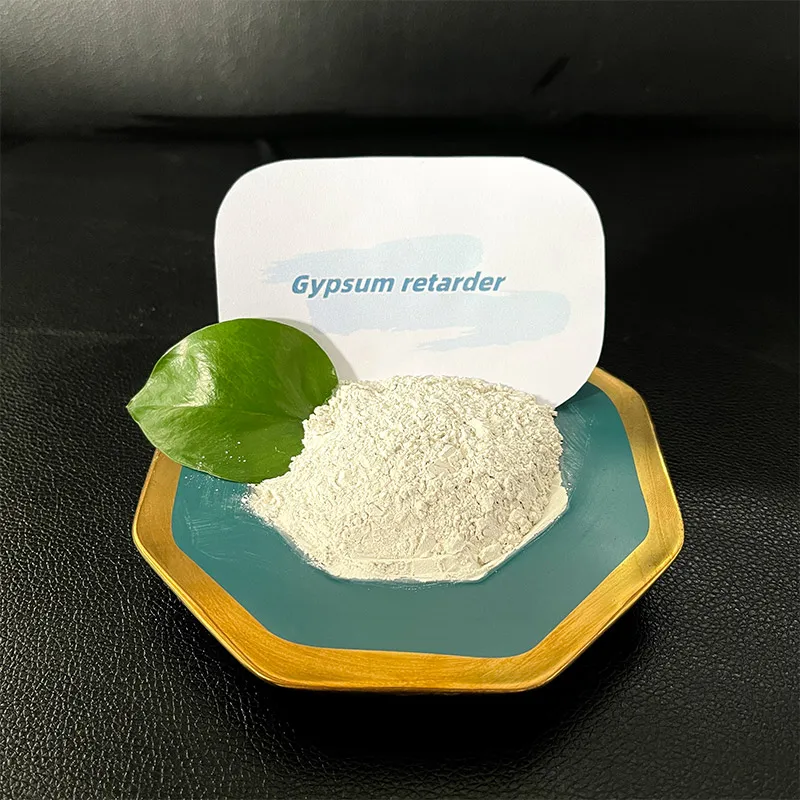
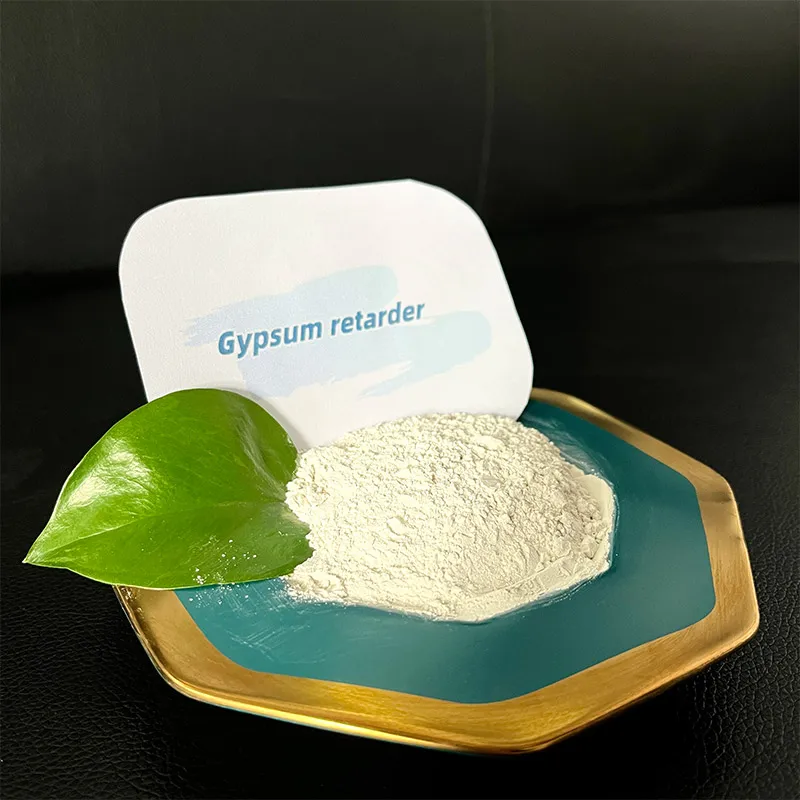
4. Technical Specification & Parameters: Plaster Retarder vs. Competitors
| Product | Setting Time (min: initial/final) | Dosage (%) | Solubility | pH (1% sol) | Chloride Free | Lead/Heavy Metals | Standards Met |
|---|---|---|---|---|---|---|---|
| BHPM Gypsum Retarder | 35-95 / 110-180 | 0.03–0.15 | Instant | 6.0-8.0 | Yes | <0.001% | EN 13279, ISO 9001 |
| Protein-Based Retarder (A) | 30-80 / 100-170 | 0.07–0.25 | Partial | 4.5-7.5 | Yes | <0.002% | EN 13279 |
| Starch Derivative (B) | 25-75 / 90-160 | 0.10–0.20 | Moderate | 5.0-7.0 | Yes | <0.002% | EN 13279 |
| Citric Acid Solution (C) | 18-50 / 60-95 | 0.15–0.35 | Full | 2.5-5.0 | Yes | <0.002% | ASTM C472 |
BHPM Gypsum Retarder demonstrates a superior balance of high activity, low dosage, excellent solubility, and compliance with both EN 13279 and ISO 9001 standards, ensuring consistent performance and international acceptance.
Figure: Product setting time and dosage comparison for plaster retarder and substitutes.
5. Technical & Application Advantages
Technical Edge
- **Extra time plaster additive** for hot climate or complex workflow jobsites.
- Uniform controlled setting for mechanized plastering or 3D prefab.
- Eco-friendly, formaldehyde-free, chloride-free for LEED or BREEAM projects.
- High stability: up to 12 months shelf life when properly sealed.
Application Benefits
- Reduces structural shrinkage cracks by ~40% (tested, ISO 679:2009).
- Allows for larger batch mixing and improved labor productivity.
- Enhances surface smoothness, adhesion, and machine finish.
- Improves compatibility with additives (HPMC, water retention agents, wetting agents).
Figure: Market share of various plaster retarder technologies (2024, % by category).
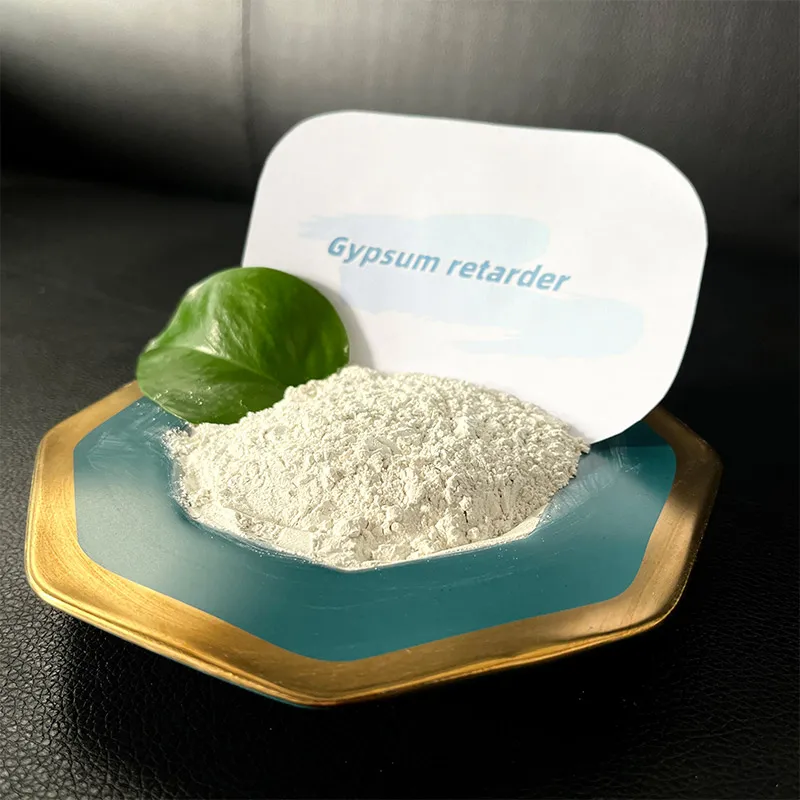
6. Application Scenarios: From Construction to Special Industries
Key industries and scenarios for plaster retarders:
Case Study: Large Hotel Project (2023, Malaysia)
The use of BHPM Gypsum Retarder supported a 20% reduction in labor cost and virtually eliminated setting failures during high humidity season. Client feedback indicated a more consistent finish and improved surface hardness 10 days after application.
- Building & Ceiling Tiles: Extended working time for plasterboard formation, hand/machine application.
- Decorative Moldings: Complex gypsum crafts, sculptures needing precise setting control.
- Pipe/Lining/Industrial Fixing: Large-scale installations benefit from delayed set.
- Medical Field: Plaster bandages and orthopedic casts with safety-tested retarders.
- Oil & Gas, Metallurgy: Pipe wrap and insulation using customizable retarder profiles.
- Renovation/Fast-Track Construction: Guarantees on-time finish without stress cracks in fast-paced projects.
Case Study: Large Hotel Project (2023, Malaysia)
The use of BHPM Gypsum Retarder supported a 20% reduction in labor cost and virtually eliminated setting failures during high humidity season. Client feedback indicated a more consistent finish and improved surface hardness 10 days after application.

7. Manufacturer Comparison
It's vital to select a plaster retarder supplier with proven ISO, EN certifications, and robust R&D. See below for a brief comparison:
| Manufacturer | Retarder Type | Standards | Years in Business | Technical Service/Customization | Main Markets |
|---|---|---|---|---|---|
| BHPM | Protein-polymer blended | ISO 9001, EN 13279 | 17 | Yes (lab, on-site, OEM) | Asia, EU, MEA |
| Vicat France | Protein | EN 13279 | 20+ | Basic | EU, Africa |
| KNAUF | Polycarboxylate | ASTM C472 | 16 | Yes | EU, Americas |
| Domestic Brand C | Starch | None | 6 | No | SEA, Local |
8. Customized Solutions & Order Process
BHPM Gypsum Retarder offers engineering support for tailored setting times (25–180 min), color adjustments, and packaging (3kg/25kg moisture-proof bags). Each project is reviewed with a technical form to match the best retarder dosage, mixing, and compatibility with other admixtures. OEM and bulk supply services are available.
Delivery cycle: Standard orders: 3–7 working days. Custom formulas: 7–14 days. Express global logistics/sea/air options available.
Warranty & Service: All shipments include batch test certificates. Unopened products guaranteed for 12 months. Dedicated technical after-sales hotline provides project support within 24 hours.
Cooperating Groups: Skanska, China State Construction Engineering, local hospital chains, regional hardware distributors.
Warranty & Service: All shipments include batch test certificates. Unopened products guaranteed for 12 months. Dedicated technical after-sales hotline provides project support within 24 hours.

9. FAQ: Advanced Plaster Retarder Questions
Q1: What is the standard setting time achieved with BHPM gypsum retarder?
A: BHPM's plaster retarder can tailor initial setting from 35–95 minutes and final set up to 180 min, based on admixture percentage and ambient conditions, tested per EN 13279/ASTM C472.
Q2: What materials are used — is it synthetic or natural?
A: BHPM uses food-grade protein-polymers and non-toxic organics, certified under ISO 9001. No hazardous chloro-, formaldehyde, or heavy metal components.
Q3: Which industries most benefit from extra time plaster additive?
A: Construction (drywall, molding), oil/gas (pipe lagging), medical (plaster bandages), and repair projects with large surfaces or hot climates benefit most.
Q4: How is compatibility with other gypsum admixtures ensured?
A: Cohesive formula design minimizes interference, and batch samples are tested with HPMC, PVA, methyl cellulose blends for no adverse reactions.
Q5: Do you supply technical documentation?
A: Yes, each delivery includes a Certificate of Analysis, MSDS, and full TDS. Custom test reports are available on request.
Q6: What are the recommended storage and transportation conditions?
A: Keep sealed in a dry, cool place (ambient <35°C, RH <60%). Trick moisture triggers gelling. Product is non-hazardous for land/sea/air transport.
Q7: What certifications and quality guarantees do you offer?
A: BHPM Gypsum Retarder is manufactured under ISO 9001, EN 13279, and tested for EU REACH compliance. Guaranteed 12-month shelf life, performance-monitored by independent labs.
10. Conclusion & References
Plaster retarder technology is now integral to the global gypsum industry, offering extended workability, crack prevention, and tailored project performance. Choosing advanced, certified, and well-supported products such as plaster retarder from established manufacturers ensures maximum construction reliability and efficiency.
Further Reading & Forums:
Further Reading & Forums:
- “Global Outlook for Plaster Additives”, Construction and Building Materials Journal, 2020.
- “Discussion on Setting Regulators for Gypsum” (Structurae Engineering Forums), 2023.
- “Advances in Gypsum Retarder Chemistry”, ResearchGate Publications, 2021.
Latest News
-
Ethyl Cellulose Powder as a Pharmaceutical BinderNewsJul.10,2025
-
Blending Fibre Natural and Synthetic for PerformanceNewsJul.10,2025
-
Starch Ether For Construction: The Advanced Mortar Additive RevolutionNewsJul.10,2025
-
MHEC Cellulose in Cement-Based Renders and PlastersNewsJul.10,2025
-
Micronized Rubber Powder Dispersion TechniquesNewsJul.10,2025
-
Impact of Cream of Tartar Plaster Retarder on Final StrengthNewsJul.10,2025
-
Rubber Powder Durability in ConstructionNewsJun.26,2025











